There have been countless inspirational women throughout history who have made significant contributions to various fields and movements. Here are just a few notable examples:
1. Inspirational women throughout history –
Rosa Parks (1913–2005):
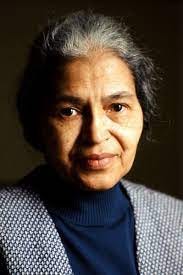
Rosa Parks was an African American civil rights activist best remembered for her leadership role in the Montgomery Bus Boycott. In 1955, Parks refused to give up her seat on a segregated bus in Montgomery, Alabama, resulting in a year-long bus boycott. Her tenacity became a key icon of the civil rights movement, inspiring many others to fight racial injustice. Rosa Parks’ tale is one of bravery, tenacity, and rebellion against racial injustice.
Rosa Louise McCauley was born on February 4, 1913, in Tuskegee, Alabama, into a racially separated and profoundly discriminatory society. Despite the structural persecution she experienced, Parks became actively involved in civil rights advocacy at a young age.
Rosa Parks boarded a Montgomery city bus on December 1, 1955, after a long day of work as a seamstress at a department store. As the bus filled, the driver ordered Parks and three other African American passengers to give up their seats to white passengers. While the other passengers complied, Parks refused to give up her seat, claiming that she was tired of racial segregation.
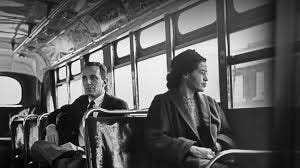
Her unwillingness to give up her seat resulted in her arrest by the local police. This incident outraged and galvanized Montgomery’s African American community. In response, civil rights advocates, notably Martin Luther King Jr., launched a 381-day boycott of the city’s bus system. The Montgomery Bus Boycott signaled the start of a new era in the civil rights movement, rallying thousands of people in nonviolent resistance against racial segregation.
Throughout the boycott, Rosa Parks became a symbol of resistance and dignity. Her quiet strength and unrelenting devotion to justice inspired people all around the country and the world. Despite persecution, threats, and economic difficulty, Parks persisted in her goal.
The boycott eventually resulted in a Supreme Court decision in 1956 declaring segregation on public buses unconstitutional, a landmark win in the civil rights movement. Rosa Parks’ daring act of disobedience sparked a national movement for racial equality and justice.
Following the boycott, Rosa Parks remained active, working relentlessly to advance the cause of civil rights. She co-founded the Rosa and Raymond Parks Institute for Self Development, which sought to empower youth and promote racial tolerance. Parks received numerous accolades and distinctions for her work in civil rights and social justice, including the Presidential Medal of Freedom, the highest civilian honor in the United States.
Rosa Parks died on October 24, 2005, but her legacy continues as a symbol of courage, resistance, and the battle for equality. Her refusal to keep silent in the face of injustice continues to inspire people all across the world to fight for what is right and to build a more just and inclusive society.
2. Inspirational women throughout history –Marie Curie (1867–1934):
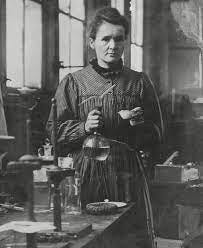
Marie Curie, a pioneering physicist and chemist, made groundbreaking research on radioactivity. She was the first woman to get a Nobel Prize and is still the only person to have received two (in Physics and Chemistry). Curie’s research paved the way for advances in nuclear physics and medicine.
Marie Curie’s biography is one of remarkable scientific accomplishment, resilience, and perseverance in the face of adversity. Maria Skłodowska, born on November 7, 1867, in Warsaw, Poland (then part of the Russian Empire), encountered enormous hurdles in completing her education and scientific career due to gender and national identity constraints.
Despite these impediments, Curie remained determined to follow her scientific interests. She came to Paris in 1891 to study at the Sorbonne, where she received degrees in physics and mathematics. In Paris, she met Pierre Curie, a fellow physicist, whom she married in 1895. The two would go on to forge one of the most famous scientific collaborations in history.
Marie and Pierre Curie conducted groundbreaking research on radioactivity, a term Marie created. They found two new elements: polonium (called after Marie’s homeland, Poland) and radium. Their work established the area of nuclear physics and transformed our understanding of the atom.
Marie Curie became the first woman to receive a Nobel Prize in 1903, sharing the award with Pierre and Henri Becquerel for their research on radioactivity. Then, in 1911, she got her second Nobel Prize, this time in Chemistry, for discovering radium and polonium.
Marie Curie’s scientific achievements were even more impressive given the societal restrictions she encountered as a woman in a male-dominated field. She persisted in the face of hostility and criticism, focused on her research and pioneering new ground in physics and chemistry.
Tragically, Pierre Curie perished in a traffic accident in 1906, leaving Marie to carry on their work alone. Despite personal and professional hurdles, such as raising two daughters as a single mother, Curie stayed committed to her research and made substantial contributions to science.
Marie Curie’s legacy goes far beyond her scientific discoveries. She opened the door for future generations of female scientists and inspired countless more to seek professions in STEM disciplines. Her fortitude, determination, and unwavering pursuit of knowledge have made her an iconic emblem of scientific brilliance and female emancipation. Marie Curie died on July 4, 1934, as a result of consequences from radiation exposure while conducting research. Nonetheless, her contributions to science and pioneering spirit continue to
3. Inspirational women throughout history –Malala Yousafzai (born 1997):
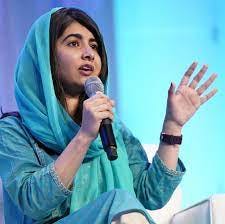
Malala Yousafzai’s narrative is one of incredible bravery, tenacity, and persistent commitment to the struggle for education and human rights, particularly for girls and women in Pakistan and around the world.
Malala was born July 12, 1997, in Mingora, Swat Valley, Pakistan. She was always interested in education, having been motivated by her father, Ziauddin Yousafzai, who maintained a girls’ school despite Taliban opposition. Malala became a vocal advocate for girls’ education in Pakistan, writing a blog under a pseudonym for the BBC Urdu service about her life under Taliban rule and the obstacles girls faced in obtaining an education.
Malala was shot in the head by a Taliban sniper while riding her school bus home in October 2012. Miraculously, she survived the attack and was flown to the United Kingdom for medical care. The assassination attempt drew international attention and indignation, prompting widespread condemnation of the Taliban’s efforts to silence girls’ voices and deny them access to school.
Following her recovery, Malala renewed her advocacy efforts. She co-wrote the memoir “I Am Malala,” which became an international bestseller and expanded her message of education for all. Malala also co-founded the Malala Fund, a non-profit organization that promotes girls’ education and empowers young women to be community leaders.
Malala’s fearless activism and powerful advocacy have earned her numerous accolades and honors, including the Nobel Peace Prize in 2014, making her the youngest-ever Nobel laureate at the age of 17. She has also received honorary degrees from prestigious universities around the world and has been recognized as a global symbol of courage and perseverance in the face of oppression.
Despite ongoing threats and intimidation from the Taliban, Malala remains committed to her aim of ensuring that every girl has access to a quality education. Her incredible journey from a little schoolgirl in Pakistan to a global symbol of education and human rights has inspired millions to join the battle for equality and justice.
Malala Yousafzai’s tale is a compelling reminder of the transformational power of education and the significance of standing out for what is right, even in the face of great peril. Her bravery and dedication continue to inspire individuals of all ages and backgrounds to strive for a more inclusive and equitable world for future generations.
4. Inspirational women throughout history –Emmeline Pankhurst (1858–1928):
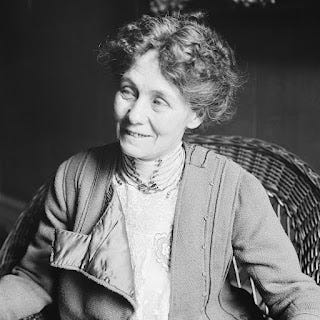
Emmeline Pankhurst’s tale is one of tenacity, bravery, and unrelenting support for women’s rights. Emmeline Goulden was born on July 15, 1858, in Manchester, England. She was nurtured in a politically active household and developed a strong sense of social justice.
Pankhurst became actively involved in the women’s suffrage movement in the late 1800s. Frustrated with the lack of progress and the government’s disregard for women’s voting rights, she rose to prominence in the campaign for women’s suffrage in Britain.
Emmeline Pankhurst created the Women’s Social and Political Union (WSPU) in 1903, which used militant and direct-action tactics to secure women’s voting rights. Under her leadership, the WSPU used a confrontational approach, staging protests, hunger strikes, and acts of civil disobedience to raise awareness of the suffrage cause.
Pankhurst’s courageous leadership and willingness to defy authority made her a target for government repression and public scrutiny. She was detained several times, subjected to harassment and assault, and even forced to eat while on hunger strike in prison.
Emmeline Pankhurst created the Women’s Social and Political Union (WSPU) in 1903, which used militant and direct-action tactics to secure women’s voting rights. Under her leadership, the WSPU used a confrontational approach, staging protests, hunger strikes, and acts of civil disobedience to raise awareness of the suffrage cause.
Pankhurst’s courageous leadership and willingness to defy authority made her a target for government repression and public scrutiny. She was detained several times, subjected to harassment and assault, and even forced to eat while on hunger strike in prison.
Her courageous and unwavering commitment to the fight for equality continues to resonate today, reminding us of the power of perseverance and collective action in the pursuit of justice.
5. Inspirational women throughout history –Ada Lovelace (1815–1852):
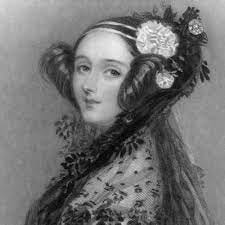
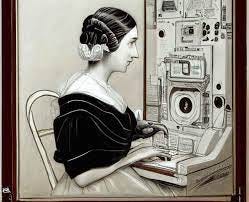
Ada Lovelace, born Augusta Ada Byron on December 10, 1815, in London, England, is widely regarded as the world’s first computer programmer. Her journey is one of intellectual curiosity, innovative thinking, and pioneering contributions to the science of computing, despite societal restraints at the time.
Ada was the daughter of the famed poet Lord Byron and Anne Isabella Byron, and her childhood was characterized by a heavy emphasis on mathematics and science, which her mother urged to counteract what she saw as her father’s chaotic and creative tendencies.
Ada’s love with mathematics and logic led her to build a close friendship and working relationship with Charles Babbage, a mathematician, philosopher, and inventor best known for his designs of early mechanical computers, particularly the Analytical Engine.
Ada translated a paper by Italian mathematician Luigi Menabrea on Babbage’s Analytical Engine from French to English in 1843. Ada added significant notes to her translation, including a comprehensive algorithm for the Analytical Engine to compute Bernoulli numbers. This algorithm is widely regarded as the first computer program ever developed, earning Ada the title of the world’s first computer programmer.
Ada Lovelace’s technical prowess, as well as her visionary insights into computing’s possibilities, distinguishes her. She realized that the Analytical Engine could do more than just calculate numbers; it could alter symbols and represent any type of information, making it a far-reaching computing engine ahead of its time.
Ada Lovelace’s contributions to computer technology were underappreciated during her lifetime, in part because of prevalent views about women in STEM professions. However, her work has since been rediscovered and recognized, and she is now widely regarded as a computer programming pioneer as well as a symbol of women’s successes in science and engineering.
Ada Lovelace Day is now commemorated annually on the second Tuesday of October to honor her legacy and recognize women’s achievements in STEM professions. Ada’s narrative inspires aspiring scientists, engineers, and programmers, reminding us that innovation knows no gender and that anybody, regardless of background or circumstance, may make a significant contribution to the world through creativity, intellect, and tenacity.
6. Inspirational women throughout history –Eleanor Roosevelt (1884–1962):
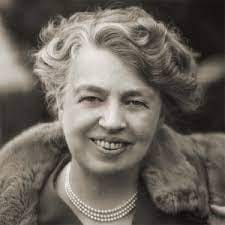
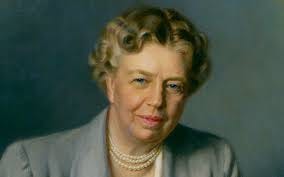
Eleanor Roosevelt’s life is an amazing example of resilience, activism, and leadership in the face of adversity. Anna Eleanor Roosevelt was born on October 11, 1884, in New York City, into a wealthy but troubled household. Eleanor was orphaned at a young age and brought up by her maternal grandmother. She had personal hurdles such as a strained relationship with her mother and a tumultuous marriage to her distant cousin, Franklin D. Roosevelt.
Despite these hurdles, Eleanor rose to prominence in American politics and culture. She revolutionized the role of First Lady during Franklin D. Roosevelt’s four-term presidency (1933-1945). Eleanor went from a ceremonial position to one of action and lobbying, championing causes including as
During the Great Depression, she traveled extensively around the United States, visiting destitute regions, talking with ordinary people, and advocating for government involvement in combating economic inequality and unemployment. Eleanor was also an outspoken advocate for racial equality, challenging segregation and racism in American culture. She resigned from the Daughters of the American Revolution in 1939 after they refused to allow African American singer Marian Anderson to perform at their venue, instead arranging for Anderson to appear at the Lincoln Memorial in a historic concert. Following Franklin’s death in 1945, Eleanor resumed her global campaign. She was a delegate to the United Nations General Assembly from 1945 to 1952 and was instrumental in developing the Universal Declaration of Human Rights.
These are just a few examples, and there are countless other inspirational women who have made significant contributions to history in various fields such as science, literature, politics, and social justice.
For more stories click here- https://www.womaniyas.com/2024/02/amrita-pritam-was-renowned-indian.html
